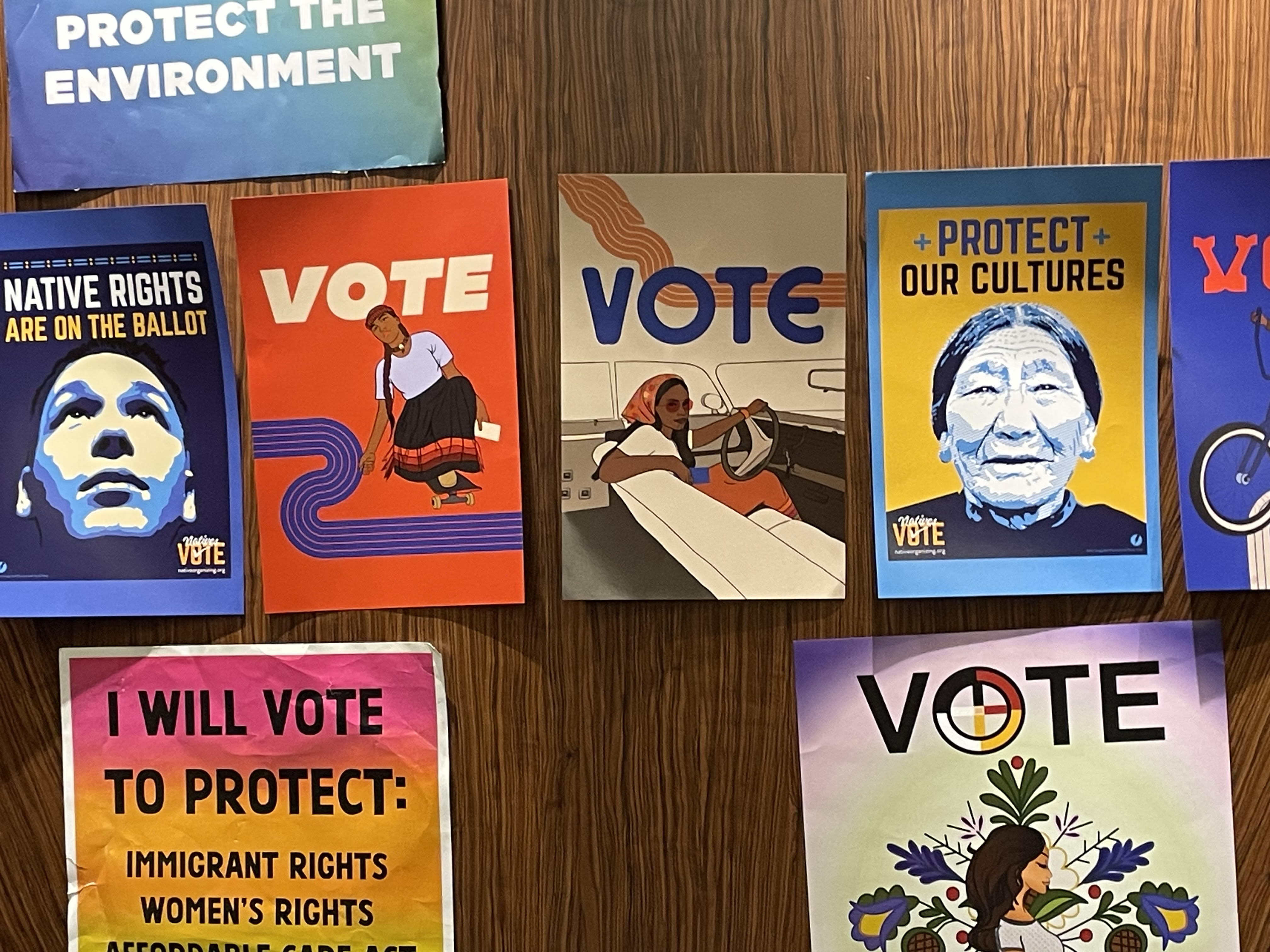
- Details
- By Native News Online Staff
Native Vote. In a significant development for voting rights, the U.S. Supreme Court has granted a stay in a closely watched case concerning Native American voters in North Dakota. The decision is a major win for the Turtle Mountain Band of Chippewa Indians, Spirit Lake Nation, and individual Native voters who successfully challenged the state’s 2021 redistricting plan — only to see the Eighth Circuit Court of Appeals later rule they lacked standing to sue.
With today’s ruling, the Supreme Court keeps in place a fair legislative map that ensures Native communities in North Dakota retain meaningful representation. The decision also preserves, at least for now, the right of voters in seven states covered by the Eighth Circuit to challenge racially discriminatory voting laws under Section 2 of the Voting Rights Act (VRA).
Since February 2022, the Campaign Legal Center, the Native American Rights Fund (NARF), the Law Offices of Bryan L. Sells, LLC, and Robins Kaplan LLP have been contesting North Dakota’s redistricting plan, arguing it unlawfully diluted Native voting power.
The Eighth Circuit’s sweeping May 2025 ruling threatened to gut one of the VRA’s key protections by holding that private citizens have no right to enforce Section 2 — a break from decades of precedent. Had that ruling taken effect, millions of voters across seven states risked losing a vital tool for fighting voter suppression.
To solidify today’s temporary win, the legal team representing Native voters plans to file a petition for certiorari, formally asking the Supreme Court to take up the case in its next term.
State and Tribal leaders welcomed the decision.
“The Supreme Court has rightfully halted the Eighth Circuit’s decision,” said Representative Collette Brown, North Dakota House District 9. “This case is about more than lines on a map — it’s about whether our communities have an equal chance to elect leaders who represent us. Today’s ruling helps protect our voice as we continue the fight for fair representation.”
“We are relieved that Native voters in North Dakota retain the ability to protect ourselves from discrimination at the polls. Our fight for the rights of our citizens continues. The map enacted by the North Dakota legislature unlawfully dilutes the votes of Native voters, and it cannot be allowed to stand,” Jamie Azure, chairman of the Turtle Mountain Band of Chippewa Indians said.
"For ecades, tribes and Native Americans in North Dakota have fought for the rights of reservation voters," said Native American Rights Fund Staff Attorney Lenny Powell. "Today is another victory in that fight. The U.S. Supreme Court paused a decision that would strip Native voters — and all voters — of their ability to enforce their rights under Section 2 of the Voting Rights Act."
More Stories Like This
Native News Weekly (August 25, 2024): D.C. BriefsNavajo Nation Mourns the Passing of Former Vice President Rex Lee Jim
Deb Haaland Earns Endorsement From Communications Workers of America Local 7076
University Soccer Standout Leads by Example
Two Native Americans Named to Democratic Congressional Campaign Committee's“Red to Blue” Program
Help us defend tribal sovereignty.
At Native News Online, our mission is rooted in telling the stories that strengthen sovereignty and uplift Indigenous voices — not just at year’s end, but every single day.
Because of your generosity last year, we were able to keep our reporters on the ground in tribal communities, at national gatherings and in the halls of Congress — covering the issues that matter most to Indian Country: sovereignty, culture, education, health and economic opportunity.
That support sustained us through a tough year in 2025. Now, as we look to the year ahead, we need your help right now to ensure warrior journalism remains strong — reporting that defends tribal sovereignty, amplifies Native truth, and holds power accountable.
 The stakes couldn't be higher. Your support keeps Native voices heard, Native stories told and Native sovereignty defended.
The stakes couldn't be higher. Your support keeps Native voices heard, Native stories told and Native sovereignty defended.
Stand with Warrior Journalism today.
Levi Rickert (Potawatomi), Editor & Publisher


